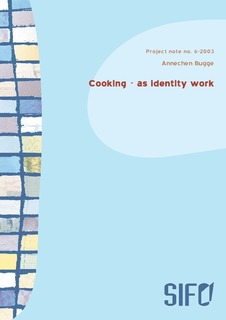| dc.description.abstract | What kind of activity is cooking? In the Norwegian food discourse the domestic cook is described as a scientist, an artist, an expert, a perfectionist, a patriot, a protector of nature, a politician, a gourmet, a good mother, a good wife and a domestic mistress. This makes daily cooking to something more than routine housework, it is also a significant part of self presentation and identity formation. The material that will be presented is part of a doctoral project on the process of establishing food habits. An aim of the project is to get an understanding of what roles cooking has in everyday life. A characteristic trend in domestic cookery the last decades is the increase in the use of foreign and commercial food products, kitchen technology and cooking utensils. Cooking has become fashionable. Food processors, blenders, pasta-/coffee-/bread-machines are typical examples of necessities in middle class kitchens. However, there is little that indicates that this has saved time and labour, but rather has led to higher demands on the domestic cook when it comes to creativity and complexity. This is also due to the fact that cooking has shifted from a back stage activity more to a front stage activity. The ideal kitchen of the 50s was a closed working room, while the ideal of today is more open, available and informal. Food-programs on TV is also seen in association with this process. When food-programs first came in the 60s they reflected the goals of the Norwegian food policies. Cookery was portrayed as a serious activity and the TV-cook made sensible and traditional food. Today the most popular food-programs show cooking more as entertainment and self presentation. | |
